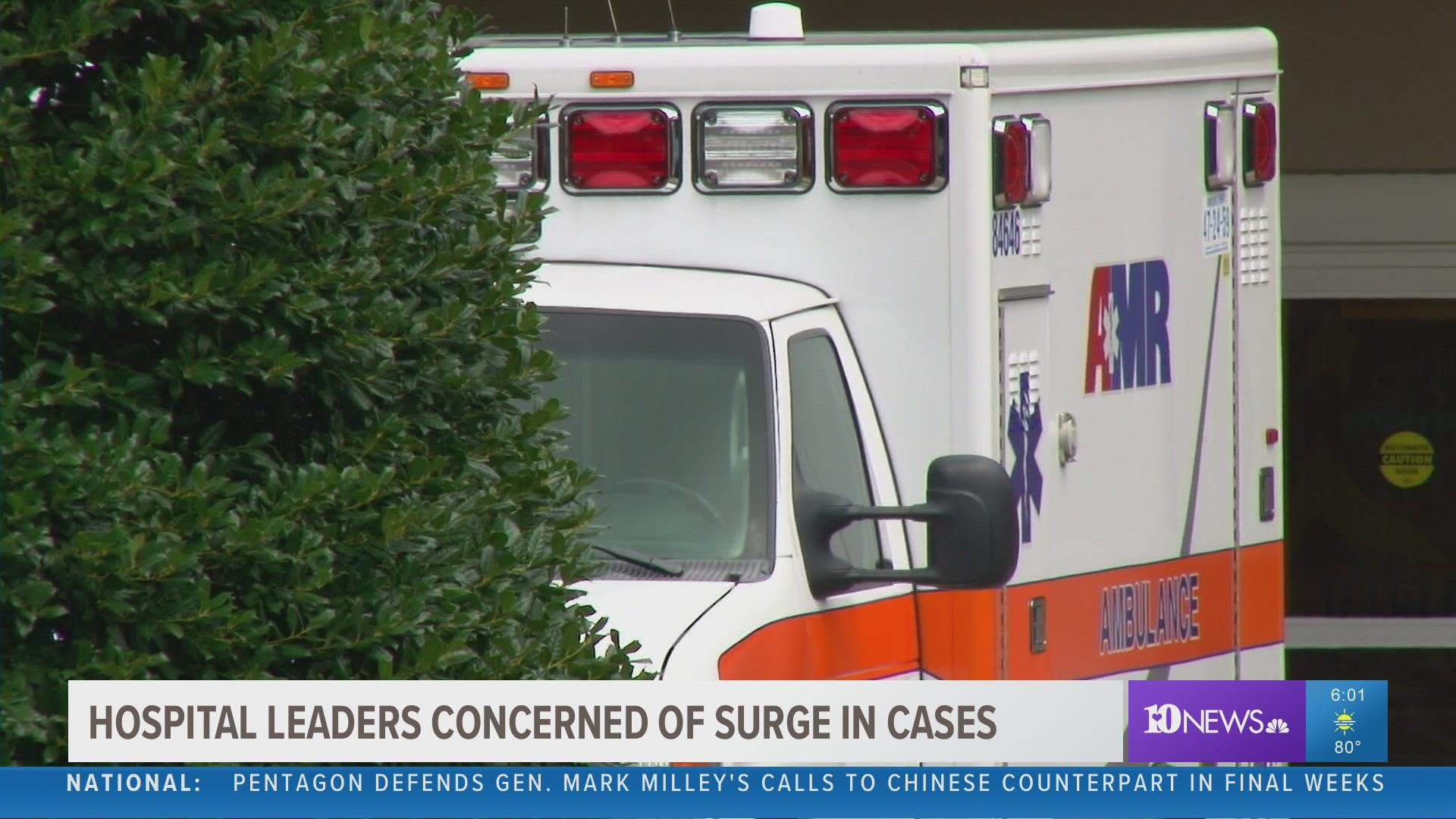TENNESSEE, USA — Leaders from East Tennessee hospitals gathered virtually on Wednesday to discuss the realities of the region's healthcare system as COVID-19 cases and hospitalizations continue to spike.
A White House report listed Tennessee as the worst in the country for COVID-19 cases, hospitalizations, and deaths per 100,000 people.
From stretched staffing to limited ICU beds to rising numbers of patients on ventilators, the hospital leaders said all of these challenges are affecting the care they are able to provide to all patients — not just those with COVID-19.
"The challenges, I add, are very, very frightening, frankly, and I think that we need to do what we can to curb this getting worse," said Dr. Harold Naramore with Blount Memorial Hospital. "I assure you if you walk through our hospitals, it’s about as real as it gets."
Dr. James Shamiyeh with UT Medical Center said this surge "is different without question than the winter surge," and it's creating a domino effect.
"If this many patients are on a ventilator or breathing machine in the ICU, that means that sicker patients than normal are outside the ICU," Shamiyeh said.
He said it's not a matter of creating more ICU beds or getting more ventilators. ICU beds require staff with a certain level of expertise, and not all ventilators offer the same kind of care.
The hospital leaders agreed staffing poses one of the greatest challenges.
"We're all working together as best we can to help take care of folks, but there is no more staff to bring in," Naramore said.
Even with the National Guard in their hospitals and requests for federal resources, Shamiyeh said "it's becoming increasingly difficult" to care for patients.
"We're actively managing our population of patients, minute to minute, hour to hour, in ways we've never before just trying to make the puzzle fit so that we can get patients to the right side of care," he said.
Dr. Mark Browne with Covenant Health asked for the community to be understanding with the hospitals' situations and not to go to the hospital unless it's absolutely necessary.
"Be patient and be kind. All of us when we're sick are not always our best selves, and our staff are extraordinarily busy," Browne said. "People who arrive after you may be seen before you if they are sicker. We triage patients in the emergency department, and the sickest patients come to the top of the list."
Every leader asked their communities to do their part in helping stop the spread of COVID-19 including, wearing a mask, washing your hands, social distancing, avoiding large crowds, and getting the vaccine.
"If you start a vaccination series now, it'll help protect you in six weeks. If you wear a mask a day today, it will help protect you today," Naramore said.
The hospital leaders said they do not know how long the surge will last or how bad it will get but emphasized it cannot become the "new normal" for healthcare.

